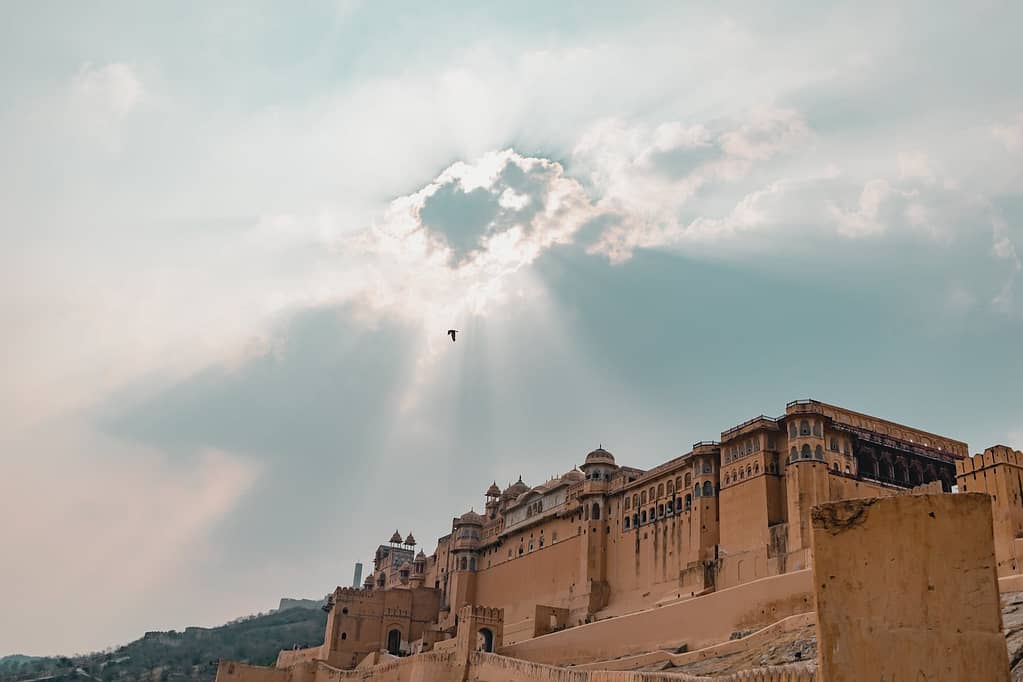The Lord our God is referred to by many names throughout the Bible. Last week, we covered the name El Roi, or the God who sees me. Today, we will talk about the name Jehovah Shammah, or The Lord is There.
What does Jehovah Shammah mean?
Jehovah Shammah is translated from Hebrew as “The Lord is There.” This term is made up from a combination of Jehovah, or Yahweh—our attempt at pronouncing YHWH, (a personal name for God in the Bible) and Shammah, or sham (meaning there). Jehovah Shammah speaks to the presence of God and is symbolic for the New Jerusalem where humanity will finally be reconciled with God forever.
Where is Jehovah Shammah in the Bible?
The name Jehovah Shammah, or Yahweh Shammah, only appears once in the Bible, in Ezekiel 48. Ezekiel the prophet was a contemporary of both Daniel and Jeremiah, living during the time of the Babylonian captivity.
Jeremiah ministered to those left behind in Israel; while Daniel worked in the Babylon courts and eventually impacted the highest levels of the political system.
Ezekiel was a Levite but was captured and brought to Babylon before he was able to become a priest. He was forced into slave labor on the banks of the Euphrates River—the location where he received his first vision from God.
Ezekiel received visions from God and brought the word to his fellow prisoners using parables and reenactments. At that time, the kingdom of Babylon had decimated Israel. The pride of Israel—Jerusalem, and its beautiful temple, laid in ashes and rubble. Ezekiel’s mission was to bring the Jews to repent and return to God, and to bring hope for the future.
The Jews had lived in captivity for 25 years when we reach Ezekiel 40. God sent Ezekiel a vision of a future Jerusalem. This vision is full of intricate details. Ezekiel sees measurements, names of the twelve gates, even descriptions of doors and decorations. Not only does God restore Jerusalem and the temple, but He fully, permanently, reconciles with the people. As it was in the Garden of Eden, in this restored Jerusalem, God is There.
“The distance all around will be 18,000 cubits. “And the name of the city from that time on will be: the Lord is there.” (Ezekiel 48:35).
Of note, while the exact wording of Jehovah Shammah only appears once, the concept repeats throughout the Bible. Further, this description of the New Jerusalem uncannily repeats in John’s vision in Revelation, approximately 600 years later. Several of the exact details, such as elements in the city, the names of gates, and the glory of God, appear in both visions. The name of the city is Jehovah Shammah, the Lord is There. How amazing, that we someday get to live with the Lord Himself!
What does Jehovah Shammah mean to us today?
God is with you.
God will never leave you or forsake you (Deuteronomy 31:6). Knowing that God is with me…I feel like I can survive anything. The God who created the universe…He’s here. Anything that happens…it is because He allowed it. And He loves us. Psalms 91:4 says that “He will cover you with his feathers, and under his wings you will find refuge; his faithfulness will be your shield and rampart.” All we have to do is sit under the shelter and care of our Father. When we feel alone, overwhelmed, and vulnerable, we can be still and know that He is there.
God is also where you cannot be.
God is omnipresent. This means that He is everywhere at the same time. He is here, and also He is there. I am not omnipresent. So, I should not worry and strive about things that I am powerless to change. I can’t even make one hair on my head white or black (Matthew 5:36).
God is in Washington, D.C. right now. God is at the hospital with that relative across country. He comes to preschool with your children; and He watches over your spouse on their long commute. He is presiding over the political tensions in Israel; giving comfort to the survivors of the earthquake in Turkey; and He is in the little things that you worry about each day.
We can trust Him because He sees things that we do not see, hears things that we do not hear, and understands things that we cannot understand (Ecclesiastes 11:5).
God will be with us forever.
Reconciliation was always the plan. The most tragic consequence of the fruit of the knowledge of good and evil was our separation from God’s presence. One line that just breaks my heart, when Adam and Eve hide themselves after eating the fruit, is when God calls out, “Where are you?” (Genesis 3:9). Man separated himself from God. And true death is the definition of separation from God.
It broke God’s heart more. And that conclusion was unacceptable to Him. So God sought out His people over and over. He came up with a new plan—multiple thousands of years in the making, to reconcile Himself again to us. Jesus (God Himself) took that death upon Himself.
“Here I am! I stand at the door and knock. If anyone hears my voice and opens the door, I will come in and eat with that person, and they with me.” (Revelation 3:20). The Lord is there. Trust Him.
I hope you enjoyed learning about Jehovah Shammah, the Lord is There. Continue diving deep with Jehovah Rohi (the Lord is my Shepherd) and Jehovah Rapha (the Lord who Heals).





